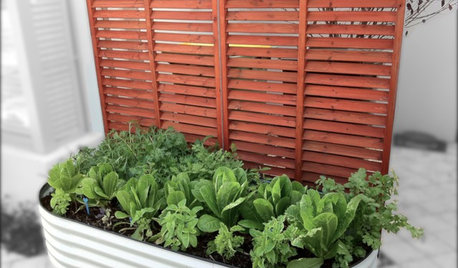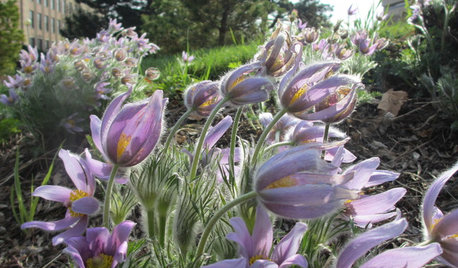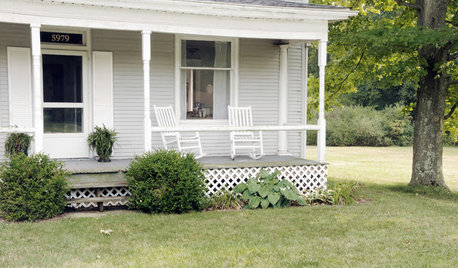Good websites for evaluating herbs and supplements
rusty_blackhaw
18 years ago
Related Stories

FEEL-GOOD HOME21 Ways to Waste Less at Home
Whether it's herbs rotting in the fridge or clothes that never get worn, most of us waste too much. Here are ways to make a change
Full Story
GARDENING GUIDESEvocative Plants to Awaken All the Senses
Slip into a garden wonderland that brings more than mere visual delight, by including these grasses, flowers and herbs
Full Story
LIFE9 Ways to Appreciate Your House Just as It Is
Look on the bright side — or that soothingly dark corner — to feel genuine gratitude for all the comforts of your home
Full Story
DECLUTTERINGDecorate with Intention: Clutter Clearing 101
Fearlessly face disorganized areas to find the home of your dreams
Full Story
HOME INNOVATIONSConsidering Renting to Vacationers? Read This First
More people are redesigning their homes for the short-term-rental boom. Here are 3 examples — and what to consider before joining in
Full Story
SELLING YOUR HOUSE15 Questions to Ask When Interviewing a Real Estate Agent
Here’s what you should find out before selecting an agent to sell your home
Full Story
LIFEHow to Prepare for and Live With a Power Outage
When electricity loss puts food, water and heat in jeopardy, don't be in the dark about how to stay as safe and comfortable as possible
Full Story
KITCHEN DESIGN9 Ways to Save on Your Kitchen Remodel
A designer shares key areas where you can economize — and still get the kitchen of your dreams
Full Story
GREEN BUILDINGGoing Solar at Home: Solar Panel Basics
Save money on electricity and reduce your carbon footprint by installing photovoltaic panels. This guide will help you get started
Full Story
MOST POPULARThe 15 Most Popular Kitchen Storage Ideas on Houzz
Solve common kitchen dilemmas in style with custom and ready-made organizers, drawers, shelves and more
Full Story





eibren
rusty_blackhawOriginal Author
Related Professionals
Suffern Landscape Architects & Landscape Designers · Homewood Landscape Contractors · Kaneohe Landscape Contractors · Melrose Landscape Contractors · North Richland Hills Landscape Contractors · North Ridgeville Landscape Contractors · Pueblo West Landscape Contractors · Southbury Landscape Contractors · Yuba City Landscape Contractors · Northlake Landscape Contractors · Carlsbad Carpenters · Carol Stream Carpenters · Franconia Carpenters · Minneapolis Roofing & Gutters · Renton Roofing & Gutterslazy_gardens
Phylla
lundpix
chaman
rusty_blackhawOriginal Author
biophilia
oakleif
oakleif
oakleif
patriotsniper
rusty_blackhawOriginal Author
oakleif
patriotsniper